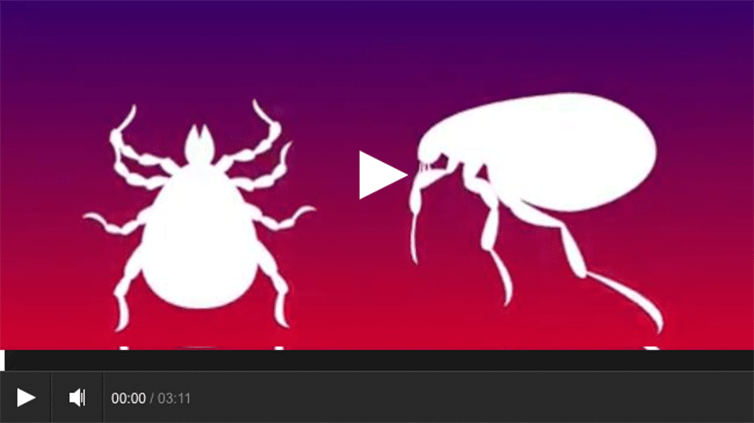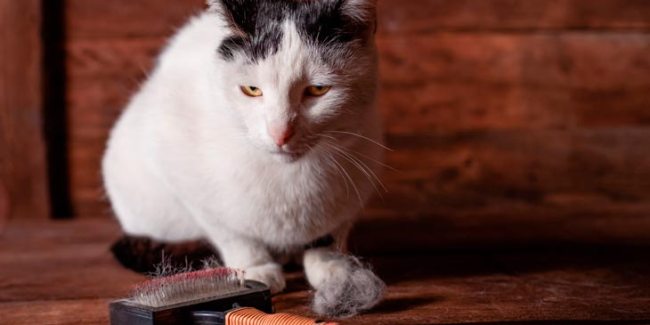Risks of Fleas on your dog
FLEAS

Posted by bravectosouthafrica – 22 November 2018
Fleas are the most common parasite found on pets and is perfectly designed to be an all-around nuisance for both you and your dog. Their legs are designed to jump great distances, their flat bodies to navigate through your pet’s hair and their mouths to suck blood. That’s why in the battle against fleas on dogs, Bravecto® takes no chances. The flea life cycle is short, and missed treatments may leave gaps in protection, allowing re-infestation in your home, driving you and your pet apart. Bravecto® covers the entire duration of the flea life cycle, so with just one treatment, fleas are all taken care of.
However, what if your pet isn’t taking his Bravecto® chew? We’re taking a look at the top risks of fleas on your dog. For more information on how Bravecto® breaks the flea life cycle, take a look at our video.

The risks of fleas on your dog:
Unfortunately, now that the weather is heating up, fleas are flourishing. The flea life cycle speeds up during summer, meaning that if you don’t stay up to date with treatments, fleas will find a way onto your pet and multiply much quicker than in the colder months. This also increases the chances of common flea related diseases. The most common risks of flea bites on your dog include Flea Allergic Dermatitis, Tapeworms and Anaemia.
Flea Allergic Dermatitis:
An allergic reaction to fleas causes dermatitis. This is specific to animals who are more sensitive to flea bites than others. Signs of Dermatitis include severe itching, skin infections and irritation due to flea bites. Depending on how sensitive your pet is, one flea bite can itch for a few minutes. However, if your pet has a flea allergy, the scratching can last for days and can result in secondary infections which can also cause months of discomfort for your pet.
Tapeworm infection:
A tapeworm infection occurs when your dog accidentally ingests an infected flea. Adult fleas are frequently carriers of microscopic tapeworm eggs. Once ingested by your pet, the eggs grow into segmented parasites which can cause weight-loss, an itchy rear and other health-related issues.
Anaemia:
Small puppies are especially prone to anaemia. Anaemia is caused by a severe flea infestation. When enough fleas infect their host, it’s possible for your dog to lose so much blood that he or she becomes anaemic.
Should you worry about your dog ingesting ticks or fleas that have been killed by Bravecto®?
No, Bravecto is insect-specific and fluralaner has no effect in mammals.
Luckily, Bravecto® gets to work within 2 hours and will kill >95% of fleas within 8 hours and gives your dog 12 weeks of continuous protection and knocking that flea population into extinction. For more info on ridding your dog and home of fleas, take a look at our blog post on protecting your home against flea infestation. Protect Your Home From A Flea Infestation
Sources:
Fleas on Dogs and Their Life Cycle
How Dangerous Are Fleas?
Bravecto For Dogs
Subscribe to our Newsletter
Get to know your furry friend better! Sign up for all things dog- or cat-related.
The Hairy Facts about the dreaded hairball
12 April 2021
Help! My dog’s barking mad! Volume 2
12 April 2021
Your Itchy, Scratchy Cat – All About Cat Skin Problems
12 April 2021
The Dog’s Diet: A Bone of contention?
01 April 2021
Mango Fly Worms: How to Spot and Eliminate them
Posted on November 28,2019
Managing Mange And Mites In Your Dog
Posted on June 11,2018
Why Do Cats Purr and How? Learn What Your Cat Is Saying
Posted on October 14,2020
How to Get Rid of Ear Mites in Dogs
Posted on November 06,2019









